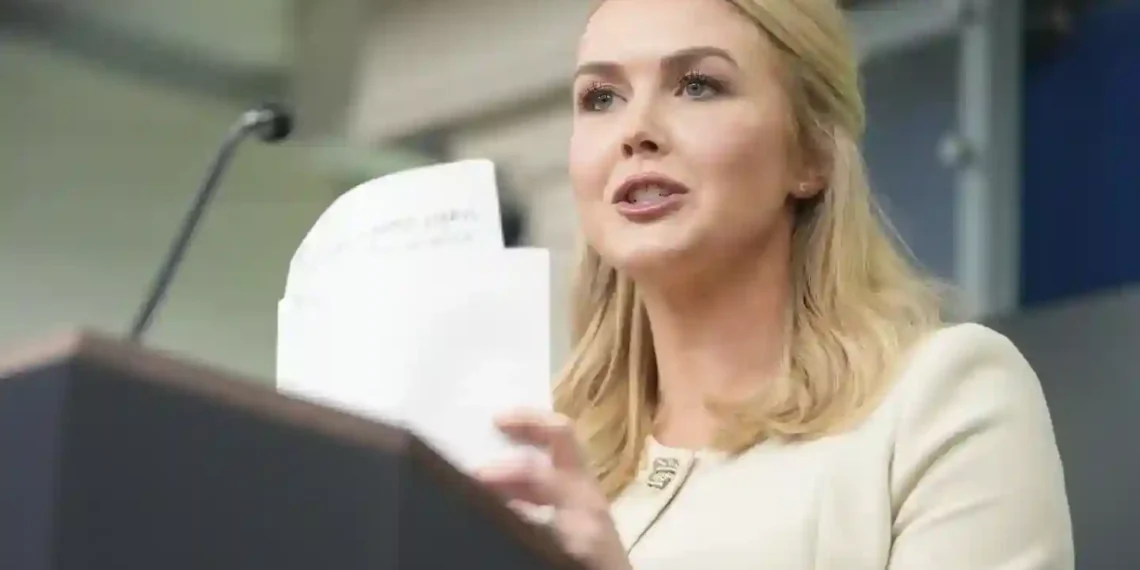Legal Showdown: Justice Department Resists Judge’s Demand for Deportation Flight Details
The Justice Department is pushing back against a federal judge’s demand for more details about deportation flights to El Salvador, arguing that such inquiries intrude on the executive branch’s authority. This latest dispute adds fuel to an ongoing legal battle between the Trump administration and the judiciary, highlighting tensions over immigration enforcement and executive power.
Escalating Tensions Between the White House and the Judiciary
The conflict stems from U.S. District Judge James E. Boasberg’s order temporarily blocking deportations under an 18th-century wartime declaration. The Trump administration, which has faced multiple judicial setbacks over its executive actions, has resisted these rulings. President Donald Trump has even called for Boasberg’s impeachment, intensifying the administration’s broader battle with the courts.
Boasberg, appointed by former President Barack Obama, had instructed the administration to provide detailed information about the flights, including takeoff and landing times and the number of deportees. The Justice Department responded by filing court papers asserting that these demands constitute a “grave encroachment” on executive power, particularly concerning national security and foreign relations.
The Government’s Argument: National Security and State Secrets
In its legal response, the Justice Department contended that the judge’s inquiries overstep judicial authority, suggesting the government may invoke the “state secrets privilege” to withhold certain information.
“The underlying premise of these orders … is that the Judicial Branch is superior to the Executive Branch, particularly on non-legal matters involving foreign affairs and national security. The Government disagrees,” Justice Department lawyers wrote. “The two branches are co-equal, and the Court’s continued intrusions into the prerogatives of the Executive Branch should end.”
Boasberg, however, countered that the information was necessary to determine whether the administration had deliberately ignored his order to halt deportation flights. He set a new deadline, requiring the administration to either provide the requested details or formally claim that disclosing them would compromise state secrets.
Did the Administration Defy the Court’s Order?
The controversy intensified after reports that deportation flights had already reached El Salvador, despite the judge’s order. Boasberg had instructed the government’s legal team to immediately inform their clients that “any plane containing these folks that is going to take off or is in the air needs to be returned to the United States.”
However, just hours later, El Salvador’s President Nayib Bukele confirmed the arrival of deportees, posting on social media: “Oopsie… too late.” His remarks fueled concerns that the administration had disregarded the court’s ruling.
In response, the administration claimed that two planes had departed before the court’s decision took effect, while a third plane, which took off afterward, did not include individuals subject to the proclamation. The administration has so far declined to provide an estimate of how many people were deported under Trump’s order.
Trump’s Use of the Alien Enemies Act
At the heart of the legal dispute is Trump’s invocation of the Alien Enemies Act, a rarely used 1798 law that has only been applied three times in U.S. history, all during congressionally declared wars. The administration cited this law to justify deportations, arguing that the Venezuelan gang Tren de Aragua posed an invasion threat.
Boasberg’s order temporarily blocked deportations under this law, ruling that the president lacks unilateral authority to declare an invasion and remove individuals accordingly. The administration, however, contends that the judiciary has no jurisdiction over the president’s decisions regarding national security and immigration enforcement.
What’s Next?
With the administration facing a new deadline to justify withholding information, legal experts predict a potential standoff over executive privilege and judicial oversight. The outcome of this case could set a significant precedent for presidential powers in matters of immigration and national security.
White House Press Secretary Karoline Leavitt disclosed that approximately 261 people were deported, including 137 under the Alien Enemies Act, but further details remain undisclosed.
As the legal battle unfolds, this case continues to raise pressing questions about the limits of executive authority, the role of the judiciary, and the broader implications for U.S. immigration policy.
This article was rewritten by JournosNews.com based on verified reporting from trusted sources. The content has been independently reviewed, fact-checked, and edited for accuracy, neutrality, tone, and global readability in accordance with Google News and AdSense standards.
All opinions, quotes, or statements from contributors, experts, or sourced organizations do not necessarily reflect the views of JournosNews.com. JournosNews.com maintains full editorial independence from any external funders, sponsors, or organizations.
Stay informed with JournosNews.com — your trusted source for verified global reporting and in-depth analysis. Follow us on Google News, BlueSky, and X for real-time updates.














